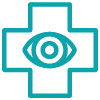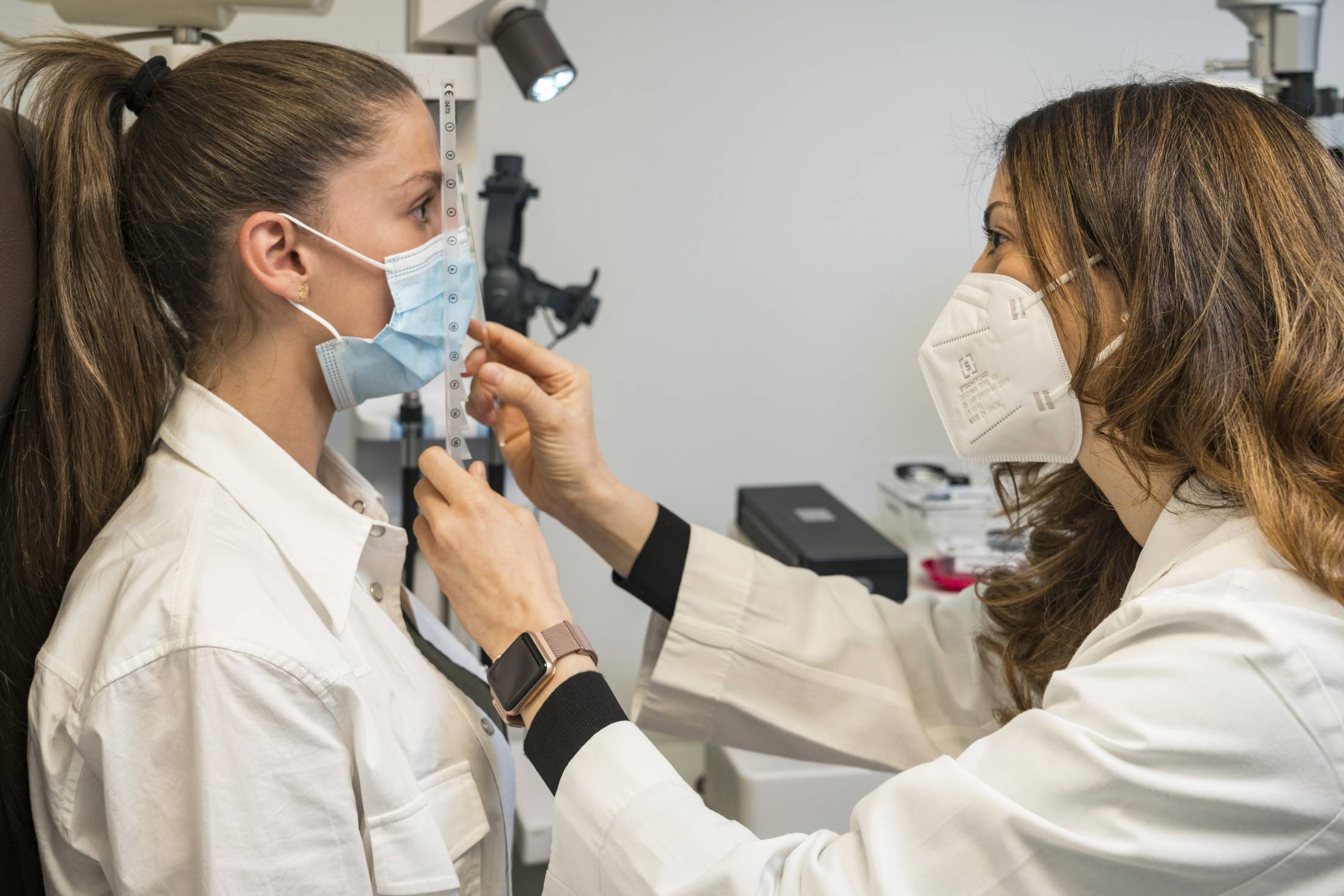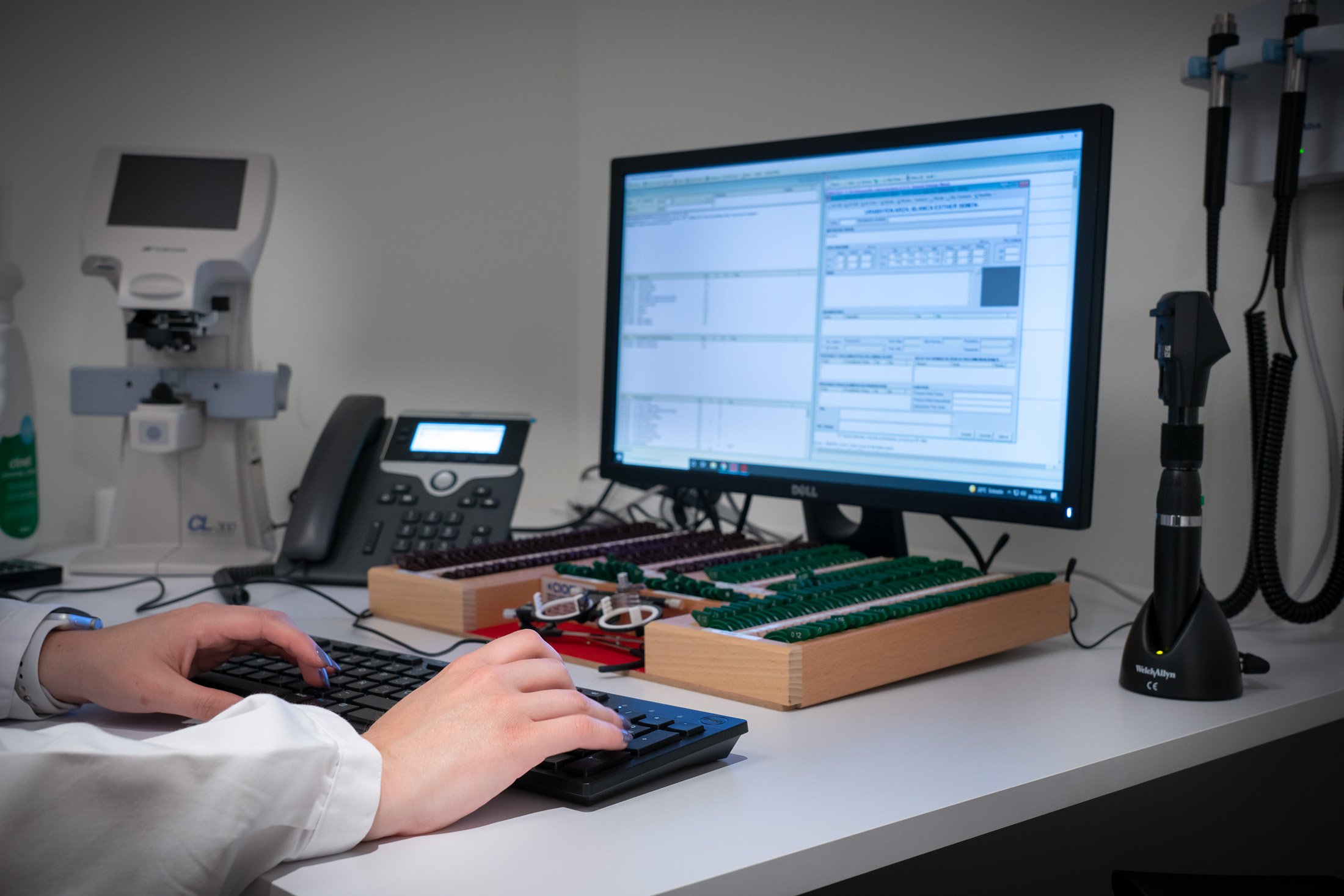
They are diseases that, without being properly of the eyes, are manifested with alterations of vision, ocular movement or pupils.

Its treatment usually requires collaboration with other types of medical specialists.

The first neuro-ophthalmological visit is one of the most comprehensive performed at the center. We also offer an online second medical opinion service.
Neuro-ophthalmology treats diseases that, without being properly of the eyes, manifest themselves with alterations of vision, eye movement or pupils. The patient sees badly, or sees double, or does not move the eyes well, or has one pupil larger than the other, but the cause is not in the eyeball, but in the brain, optic nerve or elsewhere in the body.
If we consider that almost half of our brain is dedicated to activities related to vision or eye movement, we will understand why it is so common that a brain disease can affect our sight. Some of these diseases can be irreversibly vision-threatening or even life-threatening if not diagnosed in time.
Given the complexity of this type of disease, the first neuro-ophthalmology visit is one of the most exhaustive performed at the center.
Its treatment usually requires collaboration with other medical specialists such as ophthalmologists of other subspecialties, neurologists, otorhinolaryngologists or endocrinologists, among others.
The patient sees poorly, or sees double, or does not move the eyes well, but the cause is not in the eyeball, but in the brain, optic nerve or elsewhere in the body.
The main alterations of the vision or eyeball that may be related to neuro-ophthalmologic diseases are:
Loss of vision, whether temporary or long-lasting
 The department treats diseases that, without being exactly of the eyes, affect vision.
The department treats diseases that, without being exactly of the eyes, affect vision.
Some of the pathologies that can cause neuro-ophthalmological problems are:
The first neuro-ophthalmological visit is one of the most comprehensive we perform at the center. We review below what the visit is like and what prior information we may need to determine a proper diagnosis:
At the end of the visit, we will explain the first impression we have of the diagnosis, prognosis and treatment. In case there is a possible treatment, most of the time it will involve different specialists, who may be from other branches of Ophthalmology or other medical specialties. In most cases, after this first visit, it will be necessary to perform more tests to continue looking for the diagnosis or to evaluate the evolution or possible treatment.
You can request online your appointment with our specialists in neuro-ophthalmology or ask for a second medical opinion if you want a telematic evaluation of a previous diagnosis.
For patients who already have a previous diagnosis and want another assessment by our specialists in Neuro-ophthalmology, at ICR we have an online service to request a second medical opinion.
The assessment of our professionals will be based on the reports and tests that the patient sends us and will be delivered as a medical report in PDF format or by telematic consultation with the specialist.

The Neuro-Ophthalmology Department is staffed by ophthalmologists with long experience in optic nerve, orbit and brain conditions associated with neurological diseases with visual symptoms.
Experience, technology and medical and human quality.

Contact us or request an appointment with our medical team.